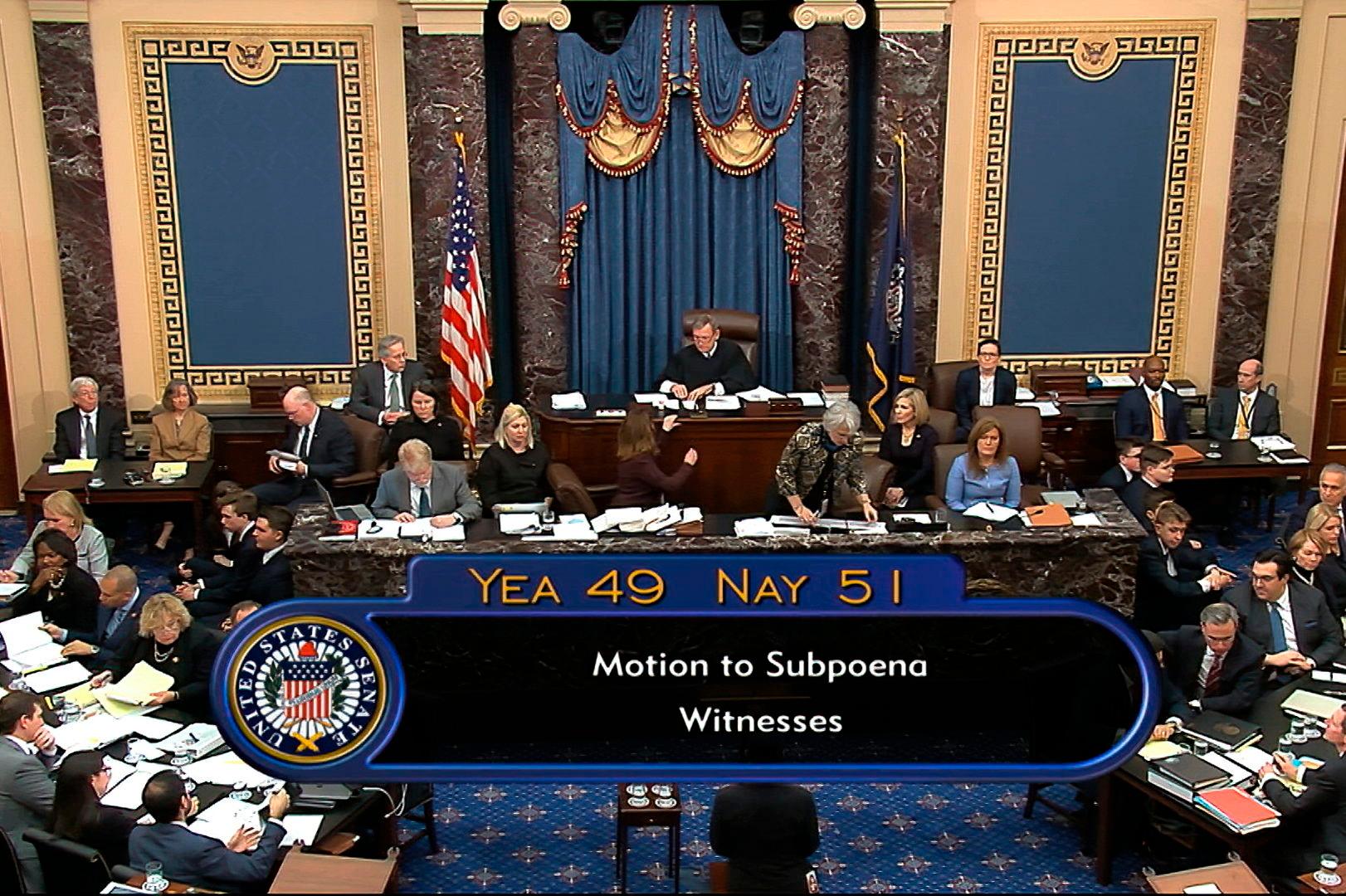
In an impeachment trial whose outcome is considered an almost foregone conclusion — observers have never expected Democrats to win over the 20 or more Republican senators they'd need to remove the president — any suspense there's been has focused on the question of whether to call witnesses.
On Friday, the Senate put that suspense to rest, with 51 Republicans successfully defeating Democratic efforts to call former National Security Adviser John Bolton and others.
Two Republicans — Sen. Mitt Romney and Sen. Susan Collins — joined all Democrats in voting for the measure.
Sen. Cory Gardner joined his other GOP colleagues in rejecting witnesses, a position he had earlier made clear.
"I do not believe we need to hear from an 18th witness," Gardner said in a statement Wednesday, referring to the 17 witnesses questioned during the House investigation. "I have approached every aspect of this grave constitutional duty with the respect and attention required by law, and have reached this decision after carefully weighing the House managers and defense arguments and closely reviewing the evidence from the House, which included well over 100 hours of testimony from 17 witnesses."
Democratic Sen. Michael Bennet argued throughout the process that the Senate should use its power to try to uncover more information in the case.
“If we allow this to go forward without having documents and witnesses when we’ve got these serious allegations of the president’s abuse of power and the kind of corrupt stonewalling he’s engaged in,” Bennet said last week, “no future president will be held accountable.”
With the door closed on the witness question, the Senate is expected to take the weekend off and reconvene next week to finish their proceedings and vote on the two articles of impeachment.









